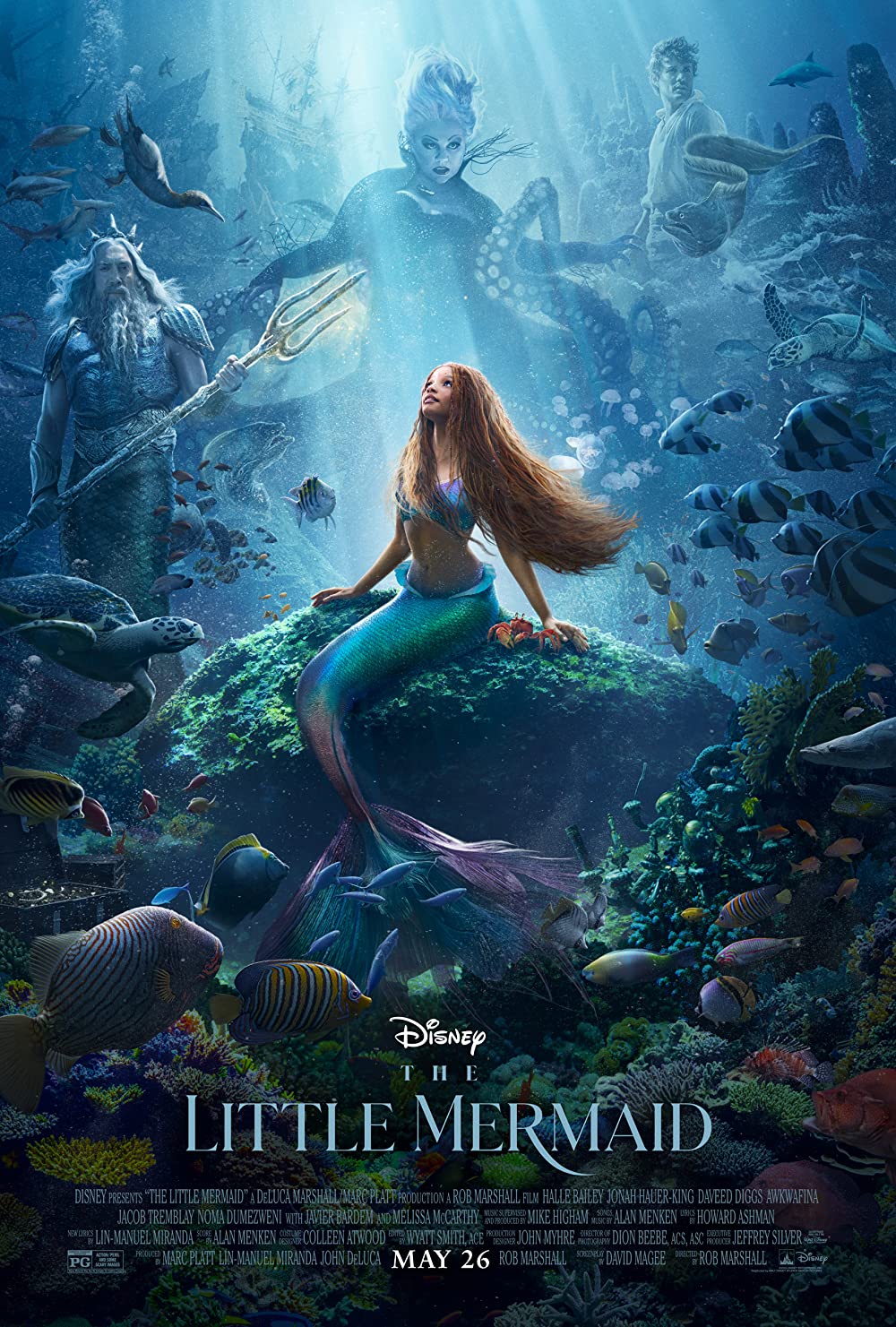
02 Jun The Little Mermaid Review by Amaru Moses
THE LITTLE MERMAID
There always seems to be a little something missing from these Disney live-action remakes. There’s a piece of magic that just doesn’t fully materialize when putting them together. The newest attempt at reimagining a Disney Animation Renaissance classic, The Little Mermaid, does all it can to minimize the soul-sucking losses its predecessors experienced. Halle Bailey’s portrayal as Ariel is a star-making performance, the voice acting helps create much better versions of the inherently creepy anthropomorphous characters that plagued 2019’s The Lion King, and both the musical and narrative additions enhance on the original’s classic (if also straightforward) plot. But the movie ultimately falls short of recapturing the magic from 1989 because of director Rob Marshall’s lack of cohesive direction.
As we return to Ariel’s journey of wanting to be a part of our world, the first act is spent mostly in her world reintroducing us to characters like Sebastian (Daveed Diggs), Flounder (Jacob Tremblay), Scuttle (Awkwafina), King Triton (Javier Bardem), Ursula (Melissa McCarthy) and Prince Eric (Jonah Hauer-King). But instead of giving us a compelling narrative with musical accompaniments that inform their distinct personalities, Marshall takes us from one music video to another with interludes of dialogue in between each. Aside from Bailey’s amazing rendition of “Part of Your World”, the first hour is a litany of bloated musical numbers composed of solo close-ups, swooping landscape shots, and hard-to-see dark water scenes cut together like your favorite music video montages. Eric’s “Wild Uncharted Waters” is the biggest perpetrator here, wanting to use the song to enhance his character and move the plot forward, but ultimately feeling like it belonged on TRL’s top 10 list in 1998.
Luckily, once we get past a halfway decent performance of Ursula’s “Poor Unfortunate Souls” and take to land, Marshall stops inflating his musical ego and lets the film’s strengths bring a semblance of soul to the rest of the movie. Bailey is truly convincing as Ariel because she doesn’t try to emulate Jodi Benson’s voice or the animated characterization. She has a childlike wonder, endearing innocence, and overflowing curiosity that captures your attention immediately. Not to mention, the girl can S.A.N.G. SANG! Her chemistry with Hauer-King worked just as palpably because of her charm, his believability, and the genuine connections built between them. Once the film focused on their narrative relationship, the musical numbers began to enhance the story instead of the other way round. “Kiss the Girl” is a highlight of the film because it builds off their relationship, utilizes beautiful visuals, and highlights how surprisingly great both Diggs and Awkwafina are in their voice roles. It was the first time in a live-action remake that realistic animals had a semblance of life to them, and that’s fully due to the energy both actors brought to their roles.
While those performances were highpoints of the film, Tremblay and McCarthy had mostly one-note performances that didn’t help or hinder the film in one way or another. Javier Bardem, however, was uncharacteristically wooden in his portrayal of King Triton. Bardem is such a regal performer that his casting made perfect sense, but instead of the normal vigor he brings to most roles, I found his monotone delivery to be a lifeless imitation of what we are used to from him. It didn’t help that the third act conflicts, which in a capsule looked and felt harrowing, weren’t given enough time to breathe stakes into McCarthy and Bardem’s pivotal character moments. Maybe if Marshall would have taken some minutes off his first-act MTV Video Award hopefuls and stretched the climax out a bit more, their characters could have made more of an impact. Even so, the unaffecting performances and uneven direction doesn’t derail what works in the film. The Little Mermaid may not yet fully justify these live-action adaptations, but it finds enough footing to avoid being another disappointment.
Review by Amaru Moses


No Comments